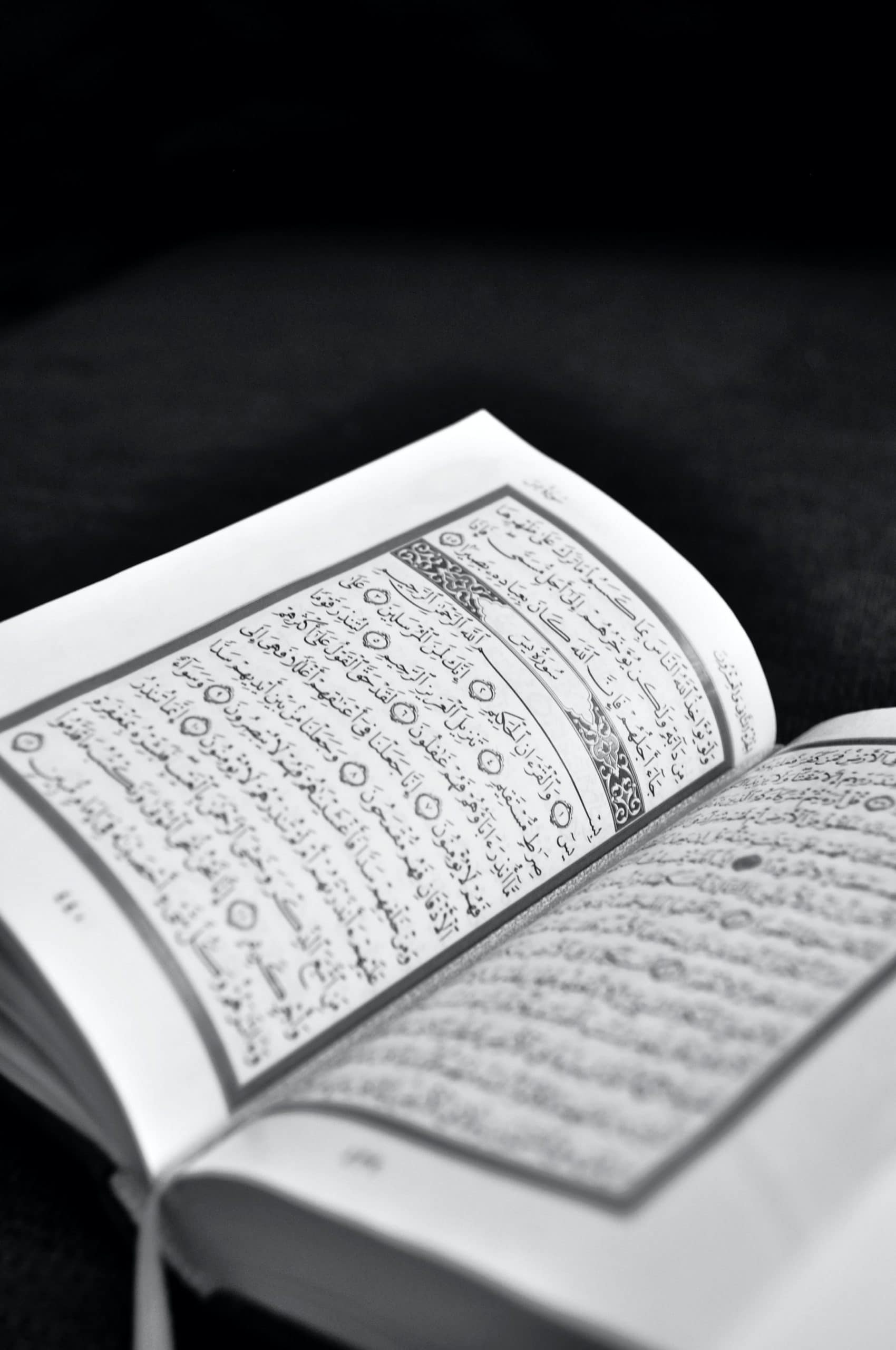#Islam
The Marriage Proposal in the Qur’an
Published

The pearls of the Qur’an never truly fails to amaze the believer. Allah 
إِنَّ فِي ذَٰلِكَ لَذِكْرَىٰ لِمَن كَانَ لَهُ قَلْبٌ أَوْ أَلْقَى السَّمْعَ وَهُوَ شَهِيدٌ
“Indeed in the Qur’an is a reminder for whoever has a heart or who listens while he is present [in mind]. (Surah Qaf; 37)





Keep supporting MuslimMatters for the sake of Allah
Alhamdulillah, we're at over 850 supporters. Help us get to 900 supporters this month. All it takes is a small gift from a reader like you to keep us going, for just $2 / month.
The Prophet (SAW) has taught us the best of deeds are those that done consistently, even if they are small. Click here to support MuslimMatters with a monthly donation of $2 per month. Set it and collect blessings from Allah (swt) for the khayr you're supporting without thinking about it.
Furthermore, whenever Allah 

Within this article, I want to focus upon the third division, and in particular, the life of a specific prophet who came before our Prophet 

Yes, we see that every prophet that came to their people came with one message, which was to worship Allah 


For example, the people of Madyan for whom the Prophet Shuayb 




Through these stories, Allah 

In this article, I want to highlight an issue from the life of the most discussed Prophet of the Qur’an: Musa 





Allah 
وَلَمَّا وَرَدَ مَاءَ مَدْيَنَ وَجَدَ عَلَيْهِ أُمَّةً مِّنَ النَّاسِ يَسْقُونَ وَوَجَدَ مِن دُونِهِمُ امْرَأَتَيْنِ تَذُودَانِ ۖ قَالَ مَا خَطْبُكُمَا ۖ قَالَتَا لَا نَسْقِي حَتَّىٰ يُصْدِرَ الرِّعَاءُ ۖ وَأَبُونَا شَيْخٌ كَبِيرٌ
“And when he came to the well of Madyan, he found there a crowd of people watering [their flocks], and he found aside from them two women driving back [their flocks]. He said, ‘What is your circumstance?’ They said, ‘We do not water until the shepherds dispatch [their flocks]; and our father is an old man.’” (Surah Qasas; 23)
فَسَقَىٰ لَهُمَا ثُمَّ تَوَلَّىٰ إِلَى الظِّلِّ فَقَالَ رَبِّ إِنِّي لِمَا أَنزَلْتَ إِلَيَّ مِنْ خَيْرٍ فَقِيرٌ
“So he watered [their flocks] for them; then he went back to the shade and said, ‘My Lord, indeed I am, for whatever good You would send down to me, in need.’” (Surah Qasas; 24)
فَجَاءَتْهُ إِحْدَاهُمَا تَمْشِي عَلَى اسْتِحْيَاءٍ قَالَتْ إِنَّ أَبِي يَدْعُوكَ لِيَجْزِيَكَ أَجْرَ مَا سَقَيْتَ لَنَا ۚ فَلَمَّا جَاءَهُ وَقَصَّ عَلَيْهِ الْقَصَصَ قَالَ لَا تَخَفْ ۖ نَجَوْتَ مِنَ الْقَوْمِ الظَّالِمِينَ
“Then one of the two women came to him walking with shyness. She said, “Indeed, my father invites you that he may reward you for having watered for us.” So when he came to him and related to him the story, he said, ‘Fear not. You have escaped from the wrongdoing people.’” (Surah Qasas; 25)
قَالَتْ إِحْدَاهُمَا يَا أَبَتِ اسْتَأْجِرْهُ ۖ إِنَّ خَيْرَ مَنِ اسْتَأْجَرْتَ الْقَوِيُّ الْأَمِينُ
“One of the women said, ‘O my father, hire him. Indeed, the best one you can hire is the strong and the trustworthy.’” (Surah Qasas; 26)
قَالَ إِنِّي أُرِيدُ أَنْ أُنكِحَكَ إِحْدَى ابْنَتَيَّ هَاتَيْنِ عَلَىٰ أَن تَأْجُرَنِي ثَمَانِيَ حِجَجٍ ۖ فَإِنْ أَتْمَمْتَ عَشْرًا فَمِنْ عِندِكَ ۖ وَمَا أُرِيدُ أَنْ أَشُقَّ عَلَيْكَ ۚ سَتَجِدُنِي إِن شَاءَ اللَّهُ مِنَ الصَّالِحِينَ
“He said, ‘Indeed, I wish to marry you one of my two daughters, on [the condition] that you serve me for eight years; but if you complete ten, it will be [as a favor] from you. And I do not wish to put you in difficulty. You will find me, if Allah wills, from among the righteous.’” (Surah Qasas; 27)
Just from these few verses, Allah 




When Musa 

Musa 


One of the daughters then goes to invite Musa 


Musa 



At this juncture, we can see how the daughter was interested in Musa 


Many a time we restrict our youth -our sons and daughters- from marrying or we prevent them for marrying whom they wish to marry because we think we know best whom they should marry. In many cultures, it is unfortunately frowned upon if a woman hints her interest respectfully in wanting to marry a man. But if we look at this passage in Surah Qasas, it is completely the opposite.
The Qur’an should be sufficient for the believer above every type of culture. The fact that your daughter approaches you hinting interest in marrying a particular brother like the woman in Surah Qasas is a sign of goodness as she recognises the boundaries of the Shari’ah and the important role the Wali has. Did not our Prophet 

إِن وَهَبَتْ نَفْسَهَا لِلنَّبِيِّ
“and a believing woman if she gives herself to the Prophet” (Surah Ahzab; 50)
This verse was revealed pertaining to a woman who came to propose directly for herself to the Prophet 






That having been said, the key takeaway is to show us that the Qur’an highlights that shyness is a quality embodied by the believer; a quality that is sought for when searching for a partner. For men, Allah 

Despite arranged marriages being a part of many cultures, we should not shun proposals brought to the table by our sons and daughters with regards to their marriage. Lastly, if you struggling with marriage and all proposals seem to be rejected, or if you lack the courage to send a proposal, utilize the du’a Musa 


رَبِّ إِنِّي لِمَا أَنزَلْتَ إِلَيَّ مِنْ خَيْرٍ فَقِيرٌ
‘My Lord, indeed I am, for whatever good You would send down to me, in need.’ (Surah Qassas; 24)
Keep supporting MuslimMatters for the sake of Allah
Alhamdulillah, we're at over 850 supporters. Help us get to 900 supporters this month. All it takes is a small gift from a reader like you to keep us going, for just $2 / month.
The Prophet (SAW) has taught us the best of deeds are those that done consistently, even if they are small. Click here to support MuslimMatters with a monthly donation of $2 per month. Set it and collect blessings from Allah (swt) for the khayr you're supporting without thinking about it.
Ibrahim Khan was blessed to have been able to memorize the Qur’an in the UK and then went on to study Aqeedah, Fiqh, Hadith with different teachers and scholars (some from which visited the UK from abroad).


Week 1 in Review: Is Your Teen Actually Changing? | Night 7 with the Qur’an

NICOTINE – A Ramadan Story [Part 1] : With A Name Like Marijuana

Why Your Teen Wants to Change Their Muslim Name | Night 6 with the Qur’an

[Film Review] Time Hoppers: The Silk Road

The Comparison Trap | Night 5 with the Qur’an

30 Nights with the Qur’an: A Ramadan Series for Muslim Teens

[Podcast] The Parts of Being an Imam They Don’t Warn You About | Sh Mohammad Elshinawy

How to Make this Ramadan Epic | Shaykh Muhammad Alshareef

[Podcast] Guardians of the Tradition: Muslim Women & Islamic Education | Anse Tamara Gray

Op-Ed: Bitterness Prolonged – A Short History Of The Somaliland Dispute

Week 1 in Review: Is Your Teen Actually Changing? | Night 7 with the Qur’an

Why Your Teen Wants to Change Their Muslim Name | Night 6 with the Qur’an

The Comparison Trap | Night 5 with the Qur’an

When You’re the Only Muslim in the Room | Night 4 with the Qur’an

When Honoring Parents Feels Like Erasing Yourself | Night 3 with the Qur’an
MuslimMatters NewsLetter in Your Inbox
Sign up below to get started
Trending
-
#Current Affairs1 month ago
[Podcast] Should Muslims Ally with Conservatives or Progressives? | Imam Dawud Walid
-
#Islam1 week ago
30 Nights with the Qur’an: A Ramadan Series for Muslim Teens
-
#Current Affairs1 month ago
Op-Ed: From Pakistan To Gaza – Why Senator Mushtaq Ahmad Khan Terrifies Power And Zionism
-
#Life4 weeks ago
[Podcast] The Parts of Being an Imam They Don’t Warn You About | Sh Mohammad Elshinawy










Abdul-hakeem
July 25, 2021 at 6:26 PM
Maa shaa Allaah. I love this.